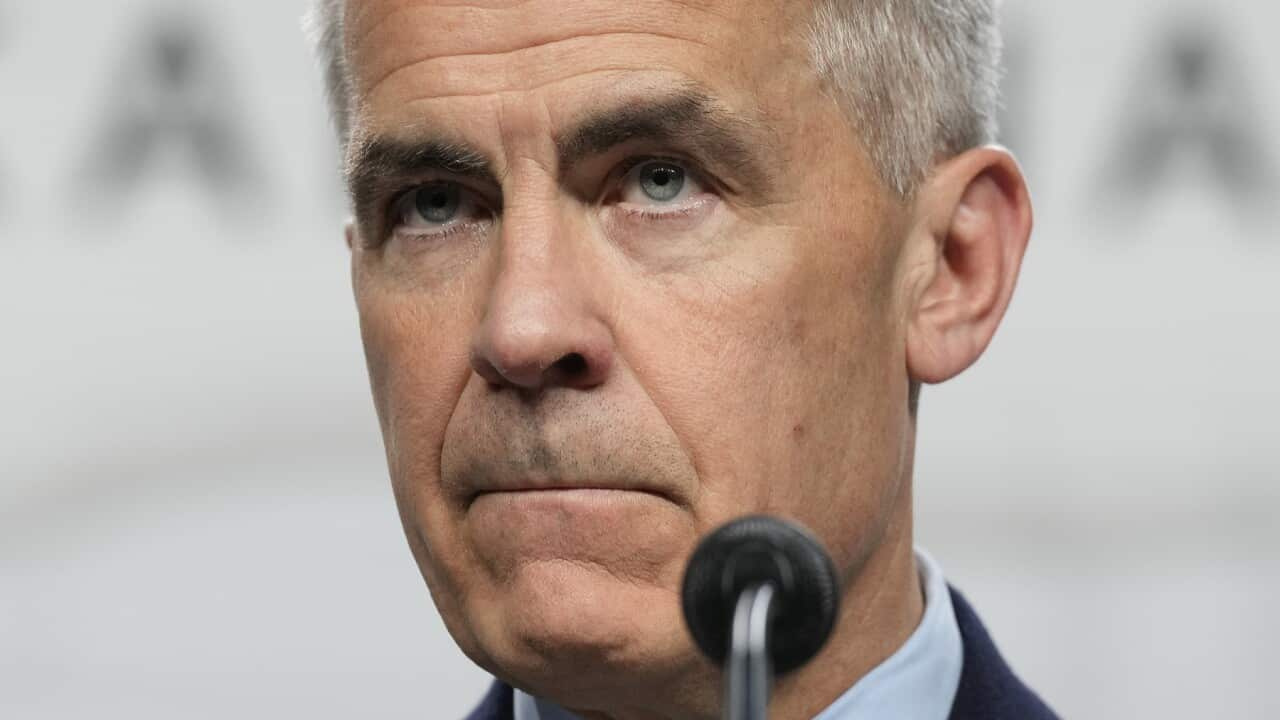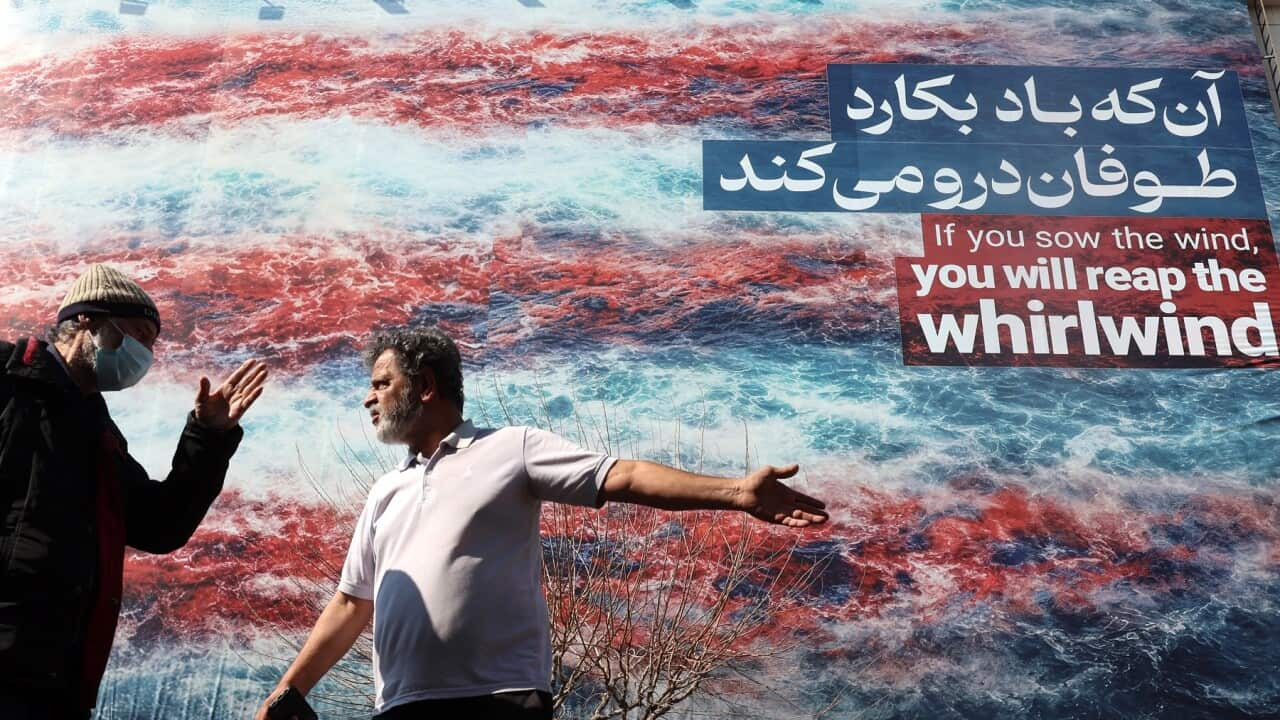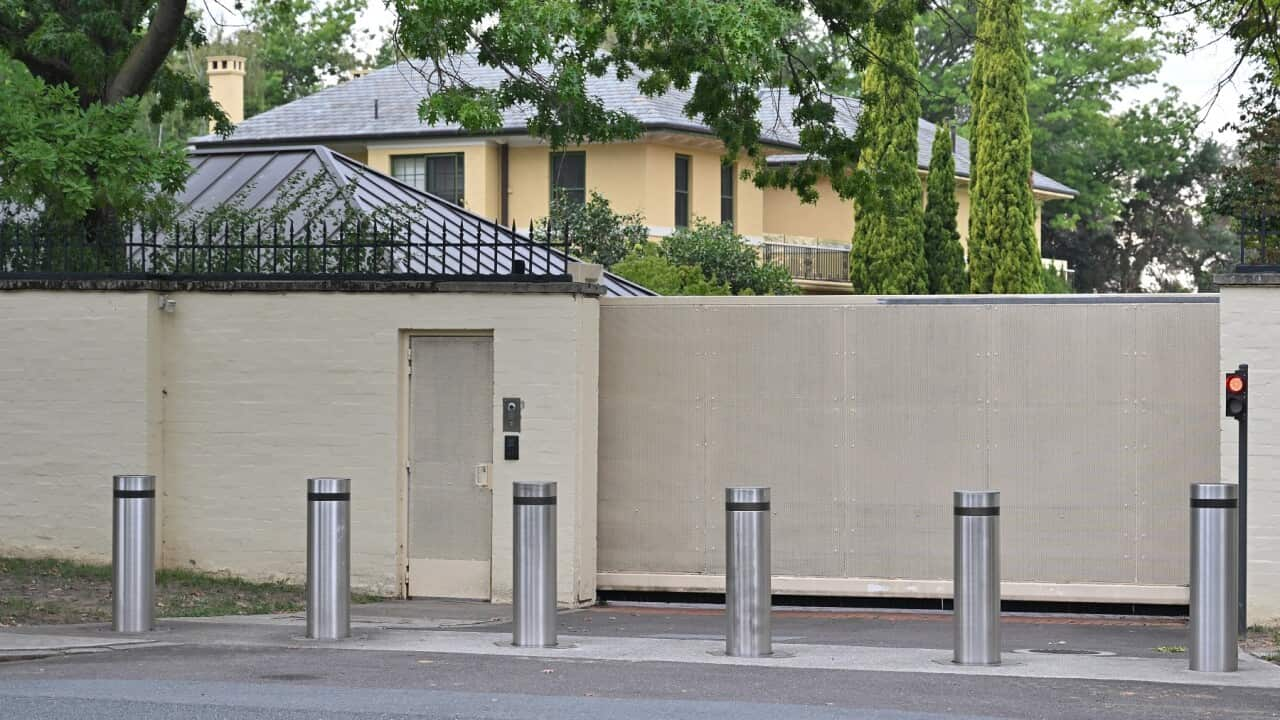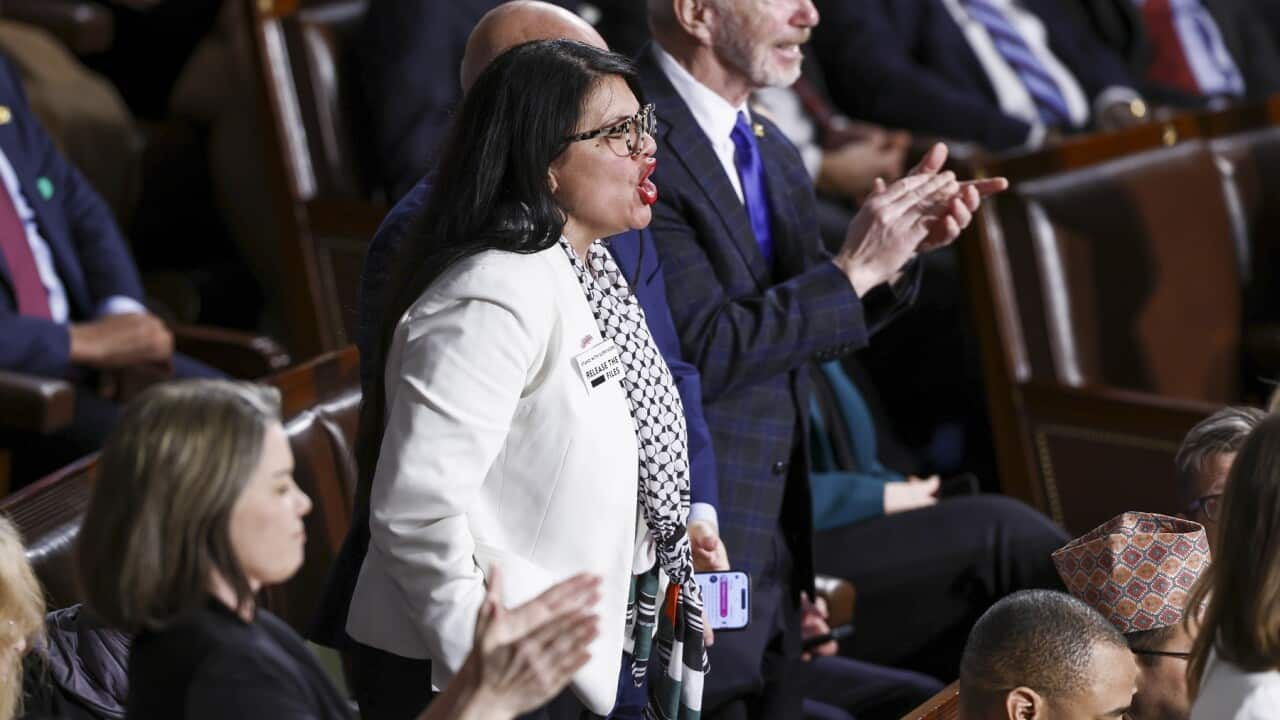Listen to Australian and world news, and follow trending topics with SBS News Podcasts.
TRANSCRIPT:
As the 50th G7 Summit closes in Kananaskis, Canadian Prime Minister Mark Carney confirms a consensus has been reached among global leaders on the current conflicts in Ukraine...
"We're also sending over $2 billion in funding for drones, ammunition, armoured vehicles to help Ukrainians defend their territory, as well as a $2.3 billion loan to help rebuild the infrastructure in that country. And (we) take a moment to reiterate our condolences, given the barbarism witnessed overnight in Kyiv caused by Russia."
... and also in the Middle East.
"G7 leaders also reiterated our commitment to the pursuit of peace and stability in the Middle East, made clear that Iran is the principal source of regional instability and terror. And we've been consistently clear that Iran can never have a nuclear weapon. We urge that the resolution of the Iranian crisis leads to a broader de-escalation of hostilities, including a ceasefire in Gaza."
But with the early departure from the summit of United States President Donald Trump, the G7 wasn't able to produce any joint declaration to demonstrate their unity on the matters.
JOURNALIST: "Joint statement specifically on Ukraine. It is the presidential statement or your chair statement, but it is not signed by the seven leaders. Why is that the case? What happened?"
CARNEY: "Nothing. Okay. This was discussed by all seven leaders. Well, it's more than seven because we have the presidents of the European Commission and the presidents of the European Council last night at dinner, these exact words, and they're in my chair summary. We had, as I said in French, we had a declaration given the exceptional and fast-moving situation in Iran. We concentrated on that and on this specific one, I held this for my chair summary."
Ukrainian President Volodymyr Zelenskyy also joined the final session of the summit, but as he left without meeting Mr Trump or securing any further military support, Mr Zelenskyy stressed that while his country wants a peace negotiation, they'll need international pressure to make it happen.
But the leaders still managed to draft a document on strategy to protect critical mineral supply.
For Australia, the G7 Summit has been fruitful.
While his meeting with Mr Trump was cancelled, Prime Minister Anthony Albanese held talks with senior US economic officials, including the US Treasury Secretary Scott Bessent, on tariffs between the US and Australia.
He also agreed to begin negotiation with the European Union on a security and defence partnership, after meeting the European Commission president Ursula von der Leyen, and European Council president, Antonio Costa.
"We see this as an important framework for our current and future cooperation in areas like defence industry, cyber and counter-terrorism. And we will have our respective ministers progress that over coming weeks, but we hope to conclude those discussions pretty quickly."
Foreign Minister Penny Wong and Defence Minister Richard Marles will be leading the negotiation.
Mr Albanese says he's hopeful that Australia and the EU will reach a free trade agreement.
"Unless the deal is in Australia's national interest then we won't agree to it. But there are two or three issues, half of which have been resolved, I think satisfactorily. We'll continue to put forward our view of an increase in the offer which is there for our sheep meat and our beef. We'll continue to engage constructively and I am hopeful that we'll get a deal done."
Mr Albanese says he's also considering a trip to Europe next week to meet other NATO leaders, and reschedule a meeting with Mr Trump.













